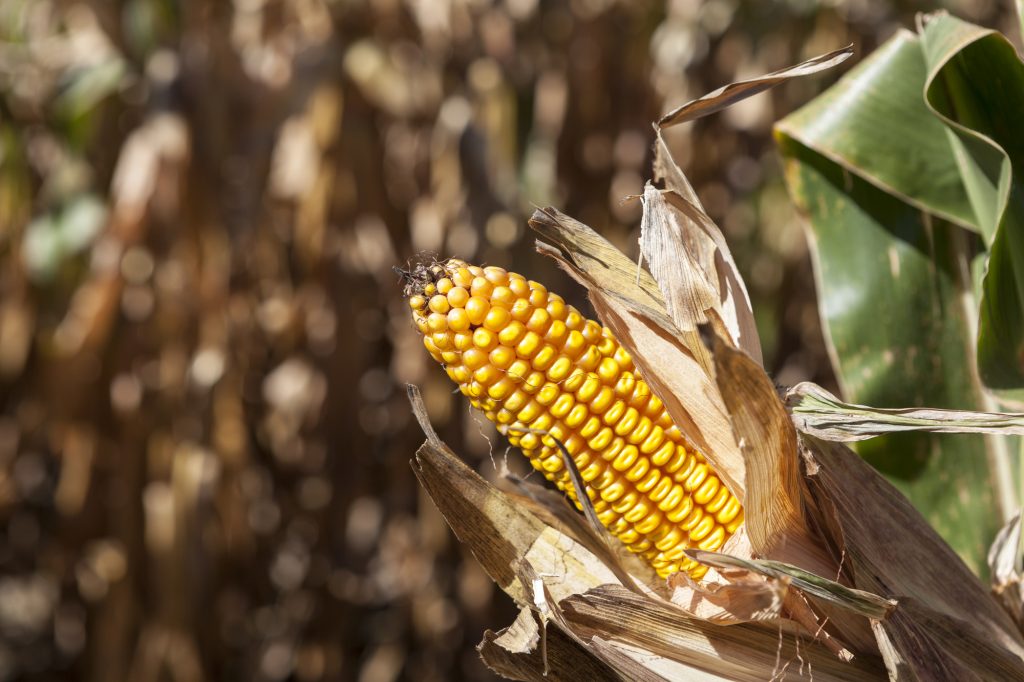
Unfortunately, most of the food that is available in grocery stores is processed in some way. Eating chemically processed foods can not only cause obesity and physical illness but can also damage your brain.
For Part 2 of our series on Mental Health, let’s take a look at one of the most insidious chemical additive– High Fructose Corn Syrup (HFCS). Of course, if you are on a healthy breast journey, it is wise to avoid all sources of sugar. But anyone who wants a more vibrant life should especially avoid this one!
HFCS: What It Is and What It Does
High Fructose Corn Syrup is used as a food thickener and sweetener and is made an enzymatic breakdown of cornstarch molecules down into smaller substances. HFCS is cheap to make mostly because the US Department of Agriculture (USDA) is now subsidizing farmers to overproduce corn in order to make it.
Almost all commercial High Fructose Corn Syrup is derived from genetically-modified corn, (GMO) and herein lies the first problem when it comes to both brain health and cancer.
Studies have linked GMO foods to autism, Parkinson’s and Alzheimer’s disease. An in vivo study published in the journal Toxicology found that Round-Up (a glyphosate-based herbicide) led to  severe neuro-toxicity and cell death in the hippocampus (part of the brain involved with short and long-term memory) of rats.
severe neuro-toxicity and cell death in the hippocampus (part of the brain involved with short and long-term memory) of rats.
Several studies have also linked GMOs to higher breast cancer risk. A 2008 Chilean study connected organo-phosphate insecticides to changes in estrogen as well as cell mutations.
The HFCS-Mercury Connection
This may come as a surprise to you, but did you know each time you consume a food that contains high fructose corn syrup, you are also ingesting trace amounts of mercury? The mercury comes from chemical processes to separate corn starches from the husk. For every gram of HFCS, there could be up to .570 micrograms of mercury. This may not seem like a lot, but when you consider that, according to some estimates, 1 out of every 10 calories the average American eats comes from HFCS, the accumulate effect could be devastating. Even trace amounts of mercury can greatly effect both cognition and cancer risk.
Conventional medicine claims that because mercury cannot easily cross the blood-brain barrier, it can do little to effect mental function. This is not correct, however, according to the latest research. Mercury has been found to effect the binding of brain neurons and has been linked to Parkinson’s, Alzheimer’s, autism, depression and anxiety, chronic fatigue, and higher suicide risk.
And, of course, mercury toxicity has been linked to Breast Cancer for years, most specifically because of the way it effects both the endocrine and immune systems.
HFCS: Hiding in Plain Sight
High fructose corn syrup is found in almost all commercially produced foods— even some foods you wouldn’t think of, like prepared soups, commercial breads and prepared meat products. This is one of the reasons why consumption of it went up by about 1,000 percent between 1970 to 1999.
 Most Americans today consume roughly 50 grams of HFCS each day – that is equivalent to 10 teaspoons per day. This fact alone could be a major factor contributing to chronic disease and mental health issues.
Most Americans today consume roughly 50 grams of HFCS each day – that is equivalent to 10 teaspoons per day. This fact alone could be a major factor contributing to chronic disease and mental health issues.
One of the biggest sources of HFCS is (not surprisingly) soda pop. HFCS is used exclusively to sweeten commercial soft drinks. In fact, did you know that there are approximately 15 teaspoons of HFCS in one 20 ounce serving of soda?
And don’t be fooled by the “new marketing” around high fructose corn syrup. “Corn sugar” is the same as HFCS, even though corn refiners have supposedly spent about $50 million trying to convince the public that “corn sugar” is the “healthier alternative.”
HFCS, Just Say No!
Perhaps the most insidious brain-altering effect of high fructose corn syrup is the way it can possibly lead to outright addiction to the substance. The result is that you keep coming back to that fast food joint, TV dinner aisle or cookie brand that you crave the most.
An amazing thing happens, however, when you make the commitment to eat a whole, balanced diet using real food. After a while, the body will begin to crave healthy foods instead! That is when you will know that you are on the path towards a healthy, more vibrant, cancer-free you!
Dr. Veronique Desaulniers, better known as Dr. V, is the founder of The 7 Essentials System ™, a step-by-step guide that teaches you exactly how to prevent and heal Breast Cancer Naturally. To get your F.R.E.E. 7 day mini e-course, and to receive her weekly action steps and inspiring articles on the power of Natural Medicine, visit https://breastcancerconqueror.com/.
